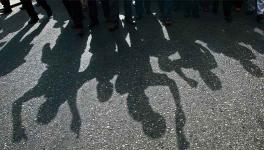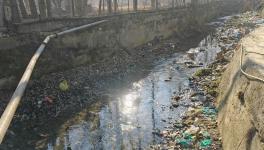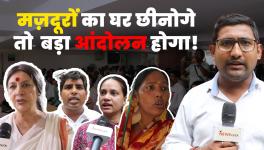Srinagar City, Where Broken Souls Struggle to Find Their Way Amid Turmoil, Pandemic
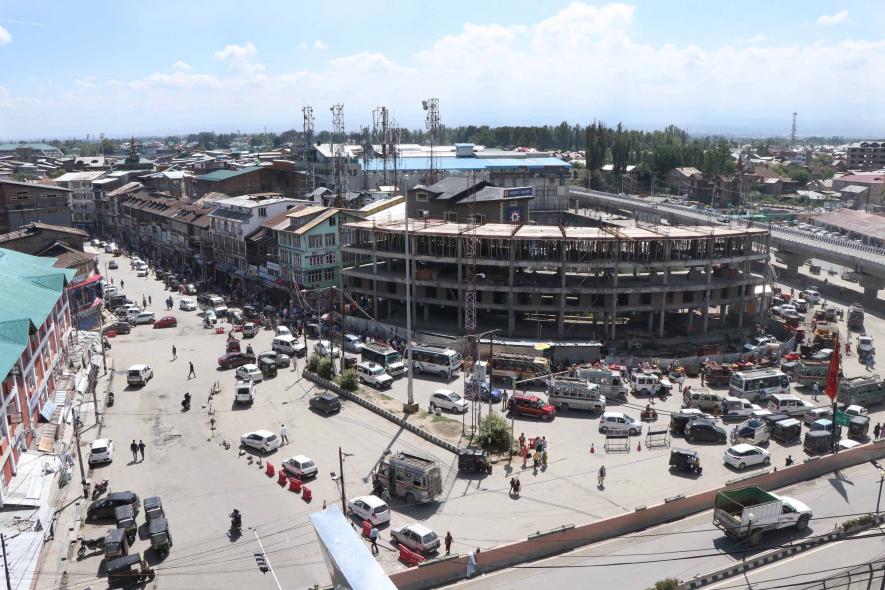
Photo by Kamran Yousuf/NewsClick
Srinagar: Crowds have begun to reappear on the streets of Kashmir. Traffic is back on the roads as it used to be, after remaining suspended on and off, first due to the state clampdown imposed last year on August 5 and then due to the lockdown in the wake of COVID-19 pandemic. The successive restrictions, however, have left their imprint -- a feeling of doom and gloom.
A sense of displeasure hangs in the air as people struggle to get back to the way they were before the ongoing crisis began, despite witnessing decades of war and conflict. They have not revived their habit of exchanging smiles as they grapple with a long-year of turmoil. Scenes on the streets are the source of pervasive stress, where even the youngest walker seems suddenly anxious of dying.
In Srinagar, people navigate through increased security checkpoints and barricades, struggling to strike a balance between traffic rules and security protocols. Many of these barricades, which at some places have made certain key routes inaccessible, were first placed over a year ago in August 2019, as the government launched a crackdown with their decision to abrogate Article 370 and subsequent bifurcation of Jammu and Kashmir into two Union territories.
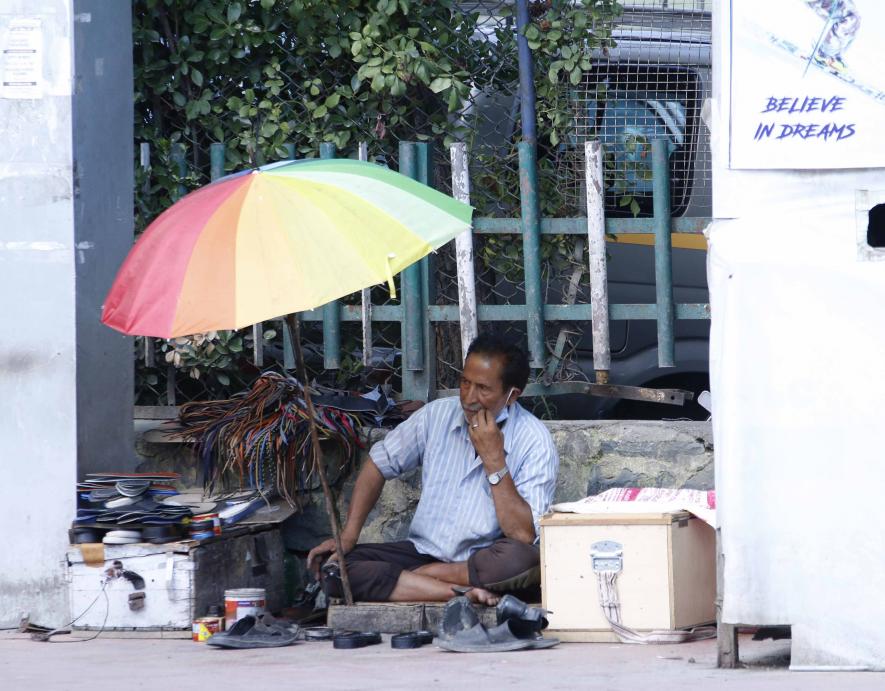
The checkpoints since then have only increased and many more have been placed since the COVID-19 lockdown was imposed. Even as the authorities have lifted most restrictions, the new strikingly yellow barricades have become part of city’s landscape.
The ancient city of Srinagar, built on the banks of Jhelum river and the shore of Dal Lake, has been at the centre of the region’s culture and politics for centuries and is also the key to regional domination. The city has been home not to legendary warriors or armies but great artisans, traders and craftsmen who have witnessed the rise, zenith and fall of several dynasties and political formations.
Now, the city is tense as its people struggle to emerge from a pandemic and from the fear of what they see as a hostile government. “This doesn’t look like the city I grew up in. There is sadness on one hand and a certain brazenness on the other,” a 31-year-old resident of Srinagar told NewsClick.
Also read: No Letup in Crisis as Restrictions Mark First Anniversary of Article 370 Abrogation in Kashmir
The “sadness,” he said, belongs to those who are affected by the changes the city is witnessing in the wake of new social and political changes being enforced in the Valley. The “brazenness,” he added, is exhibited by those in the government who are enforcing it.
Ever since the government unilaterally abrogated the special status of Jammu and Kashmir despite repeated assurances from government officials that there was no such plan to carry out any unpopular move, the people have developed acute scepticism against the authorities. With this secrecy regarding the move and successive policies like the introduction of domicile law, media and advertisement policy, people whisper to each other more about the apprehensions of the “annihilation of trade” and a plan for “demographic change”, something both the traders and politicians of the region have also been talking about.
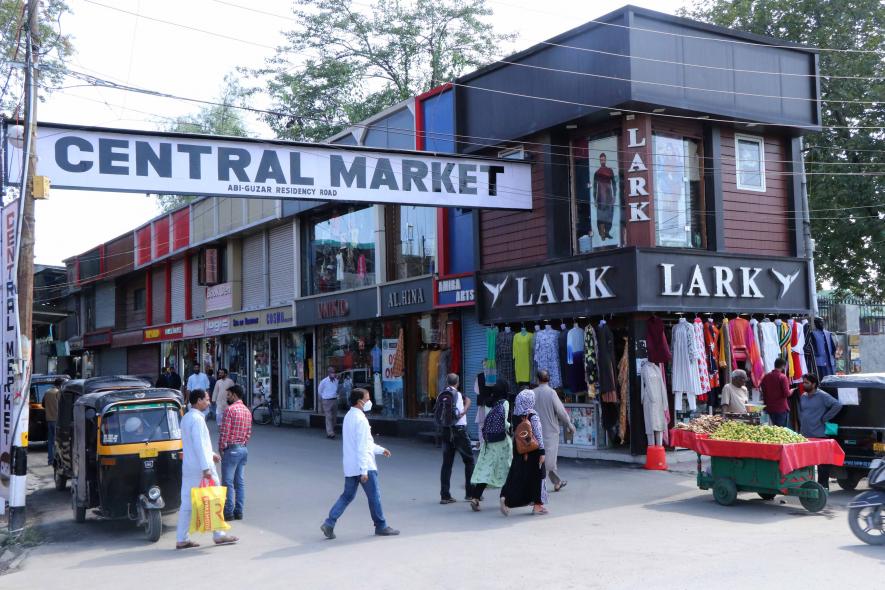
After severe restrictions were imposed in the Valley in August, the communication services were also snapped to the extent that many friends and relatives could not speak to each other for months.
Before it could go back to normal after the ease in restrictions, the pandemic dealt another blow to the region. The shops and business establishment in the city including the commercial hub of Lal Chowk have reopened, but within the limits of an administrative SOP which doesn’t allow any market to open completely and beyond a certain time in the evening.
This after the economic losses have surged to over Rs 40,000 crore or $5.3 billion post-August 5, according to the estimates of Kashmir Chamber of Commerce and Industries (KCCI).
“The markets and shops have opened but there is no flow of cash. Our economy has remained shut for 14 months so it’s not a situation like in other places who had to just deal with the pandemic. We have no liquidity and the capital has eroded and Srinagar is a difficult city for business,” KCCI President Sheikh Ashiq said.
For the revival of its markets, Ashiq added that there is a need for the government to push the region’s severely bled economy.
In Jammu and Kashmir over 800 people have died so far due to the COVID-19 infection, of which more than 700 have died in Kashmir valley. Of the total 43,557 cases reported so far in the union territory, a majority of cases (31,739) have been reported in Kashmir.
In Srinagar alone, which is where the maximum number of cases have been reported as compared to other districts, the cases have reached the 10,000 mark. As many as 1,316 new positive cases were reported on Sunday, September 6, with half of these cases in Kashmir and the rest in Jammu division.
“The people are in denial mode and people do not follow advisories. They do not seem to bother except those who have been infected or have lost someone to the infection,” an anesthesiologist Dr Masood Rashid said.
Also read: Inside Zadibal: The Siege, Clashes and Reverence
A consultant psychiatrist at Srinagar’s JLNM hospital Dr Sheikh Shoaib, who is treating many patients affected by the gloom in the city, said that the situation in Kashmir is so complicated that it flares the situation here.
“The mental health of Kashmir is very fragile and disasters or any pandemic worsens the situation here. Both old relapsed cases due to COVID-19 and new cases due multitude of effect which occurred directly or indirectly due to pandemic,” Dr Shoaib added.
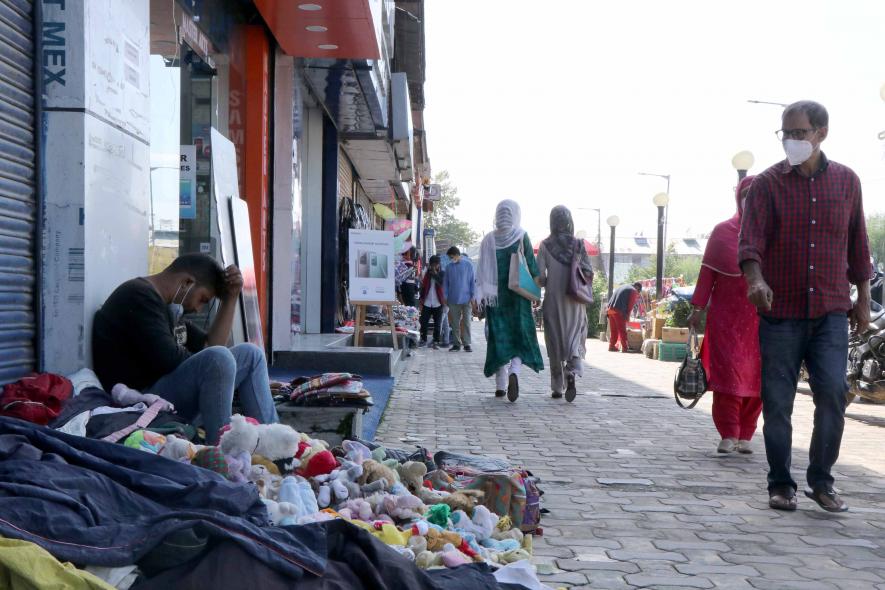
As many as 7,300 persons were detained including activists, top politicians, traders, lawyers and other civil society members ahead of the abrogation of special status, many of whom have been released after spending months in Srinagar jails and in various jails outside J&K. Among those detained were children as well. In Srinagar, over 500 children were detained illegally by the authorities after August 2019, many of whom alleged they were either beaten or tortured by police.
In all likelihood, it is the sense of loss – both economic and political, detention and humiliation which has stayed with them even though the city is beginning to buzz with activities again.
Get the latest reports & analysis with people's perspective on Protests, movements & deep analytical videos, discussions of the current affairs in your Telegram app. Subscribe to NewsClick's Telegram channel & get Real-Time updates on stories, as they get published on our website.










